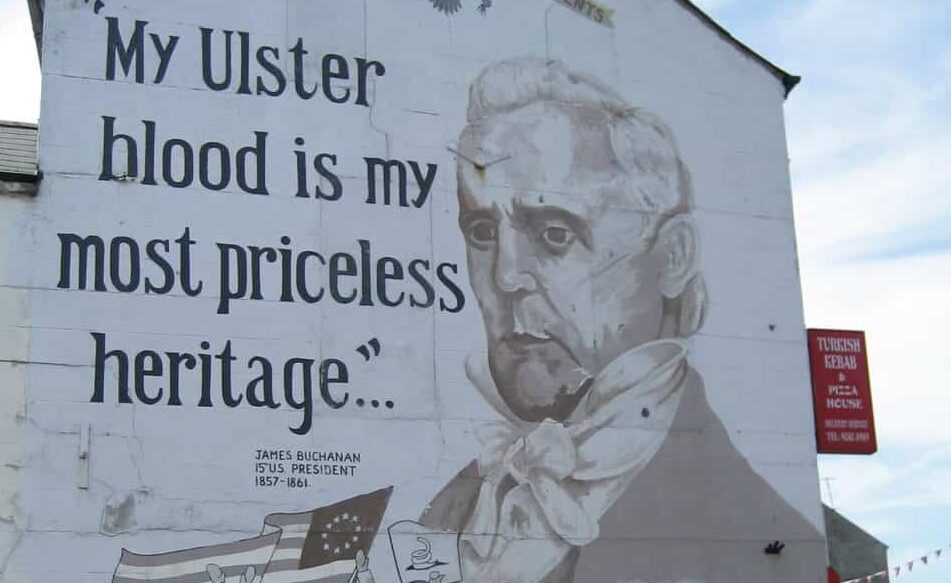As I write this from my home in Washington, DC I’m 11 days into the Irish-American Heritage Month proclaimed by President Biden in this Centennial year for Northern Ireland:
“Since before the founding of our Nation, Irish immigrants have arrived on our shores with an unyielding spirit of determination that has helped define America’s soul and shape our success across generations.”
President Biden went on:
“The fabric of modern America is woven through with the green of the Emerald Isle. This month, we celebrate the sacrifices and contributions that generations of Irish Americans have made to build a better America, and we renew the bonds of friendship that will forever tie Ireland and the United States.”
One can almost hear the most Unionist voices grimace. If folks like Sammy Wilson thought President Biden was a “parrot for Irish Nationalism” before he was elected, one can only imagine what they think having read the proclamation.
Such concerns were no doubt reinforced by news yesterday that Sinn Féin, through an associated American organization, had launched an ad campaign in the US calling for a referendum on a United Ireland.
The ads had a proclamation of their own, “as Americans, we call our government and public representatives to urge the British Government to set the date for the Unity Referendum”
One could almost forgive unionists if they felt irritation at Irish America’s seemingly singular complexion of emerald green. Almost.
Decades ago modern Irish Nationalism pitched up in the US to get known. Unionism stayed home. So if to Unionism America’s conception of Irishness seems green and its political establishment seems Irish nationalist in outlook, it has only itself to blame.
Unionism, as it so often does, failed to think long-term and today finds itself reaping what it sowed. Or, in this case, what it failed to sow. But Unionism’s failure in America need not be absolute and eternal. Politics is a game that rolls on forever.
“You can’t get known in private,” said Jack Stanton, the thinly disguised substitute for Bill Clinton in Joe Klein’s novel Primary Colors. Great advice, even if it didn’t come from the actual, and very Ulster-Scots, 42nd President of the United States.
Unionism needs to get in the game and stay for the long haul.
Firstly, it should embrace President Biden’s proclamation as a tremendous opportunity to start the work of recasting its relationship with the American political establishment and reshaping America’s conception of Irish identity into one that includes orange alongside the green already there.
Included in those Irish immigrants President Biden spoke of were, between 1710 and 1775 some 200,000 immigrants from Ulster. For context, by 1790, of the US residents of Irish birth or ancestry, half were descended from Ulster.
And shape America they did. Of the 56 signers of the Declaration of Independence, two were born in Ulster. Of America’s roster of Presidents, a good third have ancestral origins in Ireland’s northern province.
As of 2019, around 3 million Americans self-identified as Scotch-Irish.
Unionism needs to own this aspect of the great American story. It never misses an opportunity to champion the contribution of Ulster men and women who’ve shaped British history. Why not do the same for those who shaped America?
Secondly, Unionism needs to be physically present wherever possible, and however uncomfortable that may make it from time to time.
Just consider the opportunity that St Patrick celebrations present. Since moving to the US I’ve made a point every year of taking my daughter to the St Patrick parades in Washington, DC, and Alexandria, Virginia to provide her with some exposure to her Irish heritage.
But it’s striking that no trace of Northern Irish Unionist culture can be found in either parade, or any other for that matter.
Unionism should be there. And (tongue in cheek), marching is something it does well. Why not have some of the best Loyalist bands marching down 5th Avenue in New York or Pennsylvania Avenue in Washington, DC?
Why not have them accompanied by Orange Lodges?
Why not unfurl banners rarely seen outside Northern Ireland so that those accustomed to thinking of Ireland in purely green terms might gain exposure to an aspect of it that is every bit as legitimate and worthy of celebration as those they’re used to.
When it comes to Northern Ireland, I usually argue for looking forward and not back in the search for answers, and for progress. But in the matter of Irish identity and Unionism’s relationship with America, this is one situation where Unionism would actually benefit looking back, specifically to Edward Carson whose Irishness sat easily alongside his Britishness:
“I am very proud as an Irishman to be a member of the British Empire.” Modern Unionism could learn a lot from Carson.
Northern Ireland is, as the name suggests, on the island of Ireland. Those who call it home can do no other than to shape the Irish identity. So why not own it? Why not celebrate it?
And, returning to the matter above, why not use it as an opening to advance unionist interests in America, which like it or not will in perpetuity maintain an active and outsized interest in what happens on the island?
“James Buchanan Mural Shankill Road 2006” by Steve Nimmons | Exposure Triangle is licensed under CC BY
Shane is an entrepreneur, publishing executive, political commentator and author. Originally from Comber in Northern Ireland he now lives in Washington, DC. You can follow him on Twitter @shanegreer.
Discover more from Slugger O'Toole
Subscribe to get the latest posts to your email.
